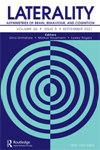Solidarity in Falling Apart
IF 0.9
4区 心理学
Q4 PSYCHOLOGY, EXPERIMENTAL
引用次数: 0
Abstract
In this essay, I reconceptualize feminized trauma by utilizing a queer crip feminist disability justice framework. This reconceptualizing allows for an intervention in both historical psychoanalytic and contemporary biomedical framings of the experience of gendered and sexual violence, pursuant or sequelic trauma, and associated symptoms. Both historical and contemporary psycho-logics too often imagine gendered and sexual violence as abnormal or exceptional events (e.g., "stranger rape") which can be treated and cured individually, thus delimiting them within a white, wealthy or middle-class, cisand hetero-feminine register. As a corrective, within the framework of everyday emergencies, insidious traumas, and cripistemologies of crisis, I position feminine fracturing and falling apart as chronic, and consider abolitionist strategies for survival, care, and solidarity beyond traditional medical frameworks for recovery. This further provides a way to understand dissociation or rather dissociative-adjacent symptomology as real, legitimate, and painful, yet also as sociopolitical products experienced differently across diverse populations—and as mundane, banal, and even expected for some. Here, feminine fracturing is symptom, method, and potential avenue for change or liberation. What does "recovery" look like when feminized trauma is endemic to the point of being so normalized and unexceptional as to be a thoroughly unremarkable part of our everyday cultural backdrop? How is this exacerbated when we examine the experiences of trans women, poor women, and immigrant and BIPOC women and femmes? I posit that there is promise in embracing a fracturing, in falling apart—as antidote to the normative and neoliberal logic of keeping it together.崩溃时的团结
在这篇文章中,我利用酷儿瘸子女权主义残疾司法框架重新定义了女性化的创伤。这种重新概念化允许对性别暴力和性暴力经历的历史精神分析和当代生物医学框架、后续或后续创伤以及相关症状进行干预。历史和当代心理学都经常把性别暴力和性暴力想象成不正常或例外的事件(例如,“陌生人强奸”),可以单独治疗和治愈,从而将它们划分为白人、富人或中产阶级、顺性和异性恋女性。作为一种纠正,在日常紧急情况、潜伏的创伤和危机的cripistemologies的框架内,我将女性的破裂和崩溃定位为慢性疾病,并考虑超越传统医学框架的生存、护理和团结的废除策略。这进一步提供了一种方法来理解分离或接近分离的症状是真实的、合理的和痛苦的,但也是社会政治产物,在不同的人群中经历了不同的经历——是平凡的、平庸的,甚至对一些人来说是意料之中的。在这里,女性分裂是一种症状、一种方法,也是改变或解放的潜在途径。当女性化的创伤地方病如此普遍,以至于成为我们日常文化背景中完全不起眼的一部分时,“康复”是什么样子的?当我们审视跨性别女性、贫穷女性、移民女性和BIPOC女性和女性的经历时,这种情况是如何加剧的?我认为,拥抱分裂和分裂是有希望的——作为保持统一的规范和新自由主义逻辑的解药。
本文章由计算机程序翻译,如有差异,请以英文原文为准。
求助全文
约1分钟内获得全文
求助全文
来源期刊

Laterality
Multiple-
CiteScore
3.60
自引率
7.10%
发文量
26
期刊介绍:
Laterality: Asymmetries of Body, Brain and Cognition publishes high quality research on all aspects of lateralisation in humans and non-human species. Laterality"s principal interest is in the psychological, behavioural and neurological correlates of lateralisation. The editors will also consider accessible papers from any discipline which can illuminate the general problems of the evolution of biological and neural asymmetry, papers on the cultural, linguistic, artistic and social consequences of lateral asymmetry, and papers on its historical origins and development. The interests of workers in laterality are typically broad.
 求助内容:
求助内容: 应助结果提醒方式:
应助结果提醒方式:


